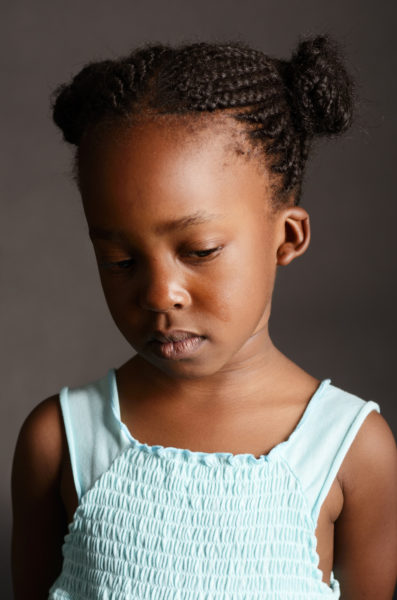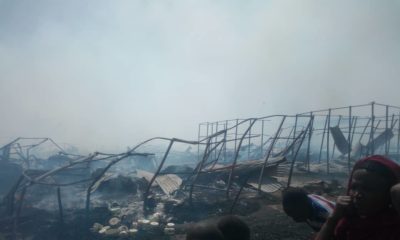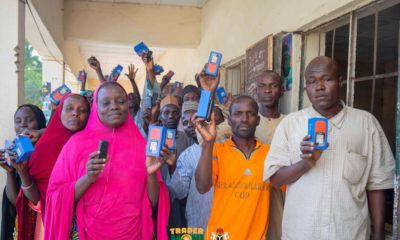Features
Tolulope Ajiboye: On Internally Displaced Persons – Is The Nigerian Government Really Doing Much?
 As at the end of 2015, Nigeria had an estimated 2.1 million internally displaced persons in it, with the Boko Haram insurgency accounting for over 85% of it. The plight of internally displaced persons is one that the government is decidedly not taking enough action on to alleviate.
As at the end of 2015, Nigeria had an estimated 2.1 million internally displaced persons in it, with the Boko Haram insurgency accounting for over 85% of it. The plight of internally displaced persons is one that the government is decidedly not taking enough action on to alleviate.
IDP Camps
While the vast majority of the IDPs in Nigeria are living with host families, an estimated 13% currently reside in IDP camps scattered all over the north east region of the country. Most of these are either open air sites with tents or collective centers like school structures and government buildings. The positives to these camps are few, namely that many of them have some type of formal or informal system of education being carried on in them and there is also access to potable and clean drinking water. On the other hand virtually all of them have no access to electricity, hygienic toilets and safe cooking facilities.
Health-wise, the situation is dire. Despite the enormous effort put in by international bodies, especially the UNICEF in providing adequate healthcare to the IDPs, the tiny number of medical personnel along with a lack of regular supply of drugs and equipment has made it impossible to match the rising rate of childbirth and sickness in the camps. The Director General of (NEMA) National Emergency Management Agency just recently, in march 2016, called for the deployment of medical doctors and other health personnel to the sites. It is doubtful though if a mere appeal to volunteers with the promise of security and incentives will work, as it seems their safety cannot be guaranteed.
In September 2015, the Boko Haram terrorists successfully detonated a bomb at the Maikohi camp, the largest IDP camp in Nigeria. It left over 7 dead and about 20 more injured. Earlier this year in February, the Dikwa camp was targeted in a devastating attack by suicide bombers which killed 58 people and left scores more injured. These are just examples of how unsafe these IDP camps are. While not discounting the need of those displaced by other reasons such as natural disasters and communal clashes, it is safe to say that majority of the security measures that the government and international organizations should put in place must be tweaked to accommodate the peculiarities of displacement by terrorism. It is not enough to secure the sites as you would normal camps. There is a terrorist situation on ground, and any form of insecurity whatsoever can lead to the deaths of both the forced migrants and volunteer workers. The IOM ( International Organization For Migration and NEMA have recently embarked on biometric data capture of residents in the camps for proper identification. This would possibly increase security in and out of them if done properly.
Attention must also be pulled to the fact that there are several IDP camps that the government is aware of but has refused to recognize. Their basis for refusal to integrate them into the government scheme is that ‘proper channel’ has not been followed. It is the responsibility of the Nigerian government to accommodate the IDPs, due process or not. Relying on bureaucratic processes to justify this inhumane treatment only serves to exemplify the nonchalance of the government towards its affected citizens.
Rehabilitation, Re-integration and Resettlement.
It is not feasible to keep IDPs in camps and host houses forever. Thought and action must be lent to the successful rehabilitation of infrastructure and the resettlement of the people into communities. It is notable that the UN and Federal government of Nigeria is not solely looking at the physiological aspects of reintegration such as infrastructure, economic empowerment and healthcare, but also the psychological parts like ostracism and stigma that would affect mostly women and female children associated with Boko Haram. The latest move in the furtherance of this is the approval by the Nigerian senate of N10billion for the resettlement of IDPs in Adamawa, Borno and Yobe States. The rationale being that local government areas and regions which were previously occupied by the insurgents have been recaptured. The funds are supposed to serve as immediate and interim financial and material support before the formation of a proposed North East Development Commission. This commission is to be saddled with the task of assessing the damages done, formulating plans and policies and basically spearhead the re-development of affected areas in the North East region of the country.
Realistically speaking, it seems that is all there is to the matter; looking into. There seems to be a propensity for the government to be all words and no action. This is evident in the state of the camps, the number of unfulfilled promises and allegations of misappropriation of funds donated to betterment of internally displaced persons in Nigeria.
Photo Credit: Dreamstime

























